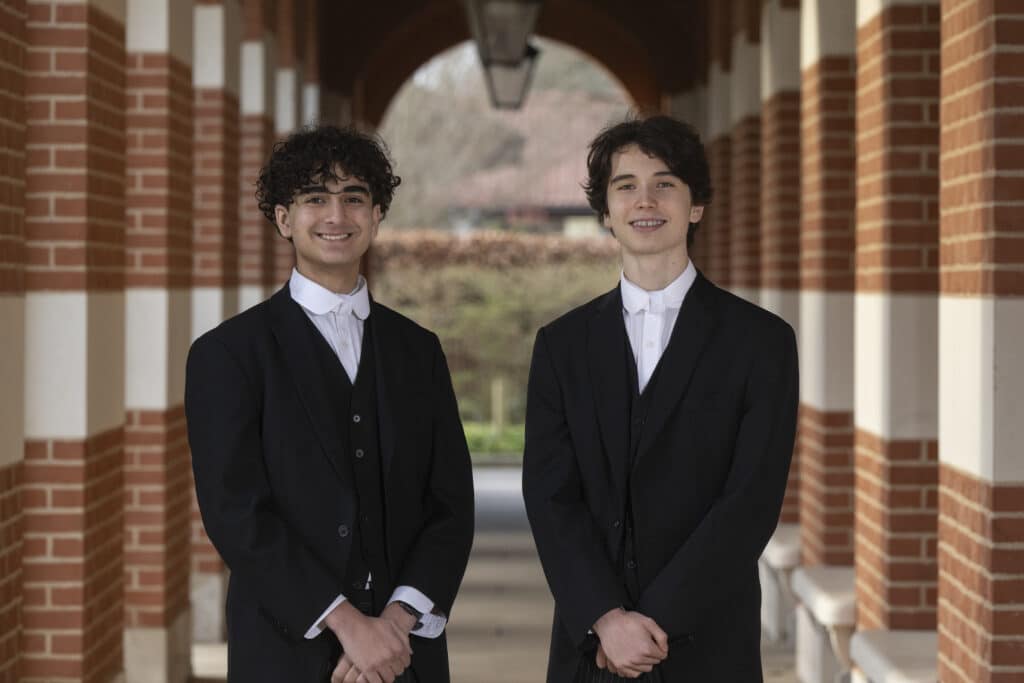The Eton pair of Tommy Seagull (MGHM) and Harry Elliott KS have won the national final of the ESU Schools Mace.
The Schools Mace is the oldest national debating competition in the UK. Starting in December, Tommy and Harry won through local, area and regional rounds in a tournament which involves hundreds of schools up and down the country. They had to argue against banning video games that involve violent criminal acts, in favour of harsher punishments for celebrities who commit crimes, in favour of state funding for assisted human reproduction treatments, and against the destruction of property as a means for environmental groups to further their aims.
The final took place on Friday at Dartmouth House, the headquarters of the English Speaking Union. It started with a semi-final round involving the eight regional champions. From these, the two teams with the strongest performances were selected to face each other in the grand final, debating the motion ‘This house would criminalise holocaust denial’. Eton were proposing the motion, up against Dulwich College, the South East regional champions, who have had a hugely successful run of form this year. It is a tall order having to argue against free speech, but Tommy and Harry managed to make the case that, with this ban, the benefits to society, to political life and to academia outweigh the harms. The panel of seven judges voted unanimously to award them the debate.
Eton have won the Schools Mace twice before, in 1964 and 1965. A recent revival in competitive debating (alongside the activities of the school’s vibrant Debating Society) has seen Eton teams reach a number of tournament finals, and this victory rounds off an exciting season. It is, in particular, a fitting reward for Tommy Seagull and all the excellent work he has done encouraging and mentoring the school’s debaters during his two years here as a Sixth Form Scholar.
Of course, it’s not all about results. The very process of participating in debating competitions is of great benefit, as organisers, judges, coaches, teachers and pupils from all kinds of schools work together to help everyone improve. Schools competitions are open, friendly affairs, and adjudicators are always generous with their feedback and tips on how to do better next time. We have also noticed that participation in external competitions has helped raise the general standard of debating within the school, as boys with competitive experience share their skills with others. Some boys who catch the debating bug go further, organising workshops and competitions for younger debaters from local and partner schools.
Having said all that, we are working hard so as not to have to wait another forty-seven years before doing this well in a national tournament.



